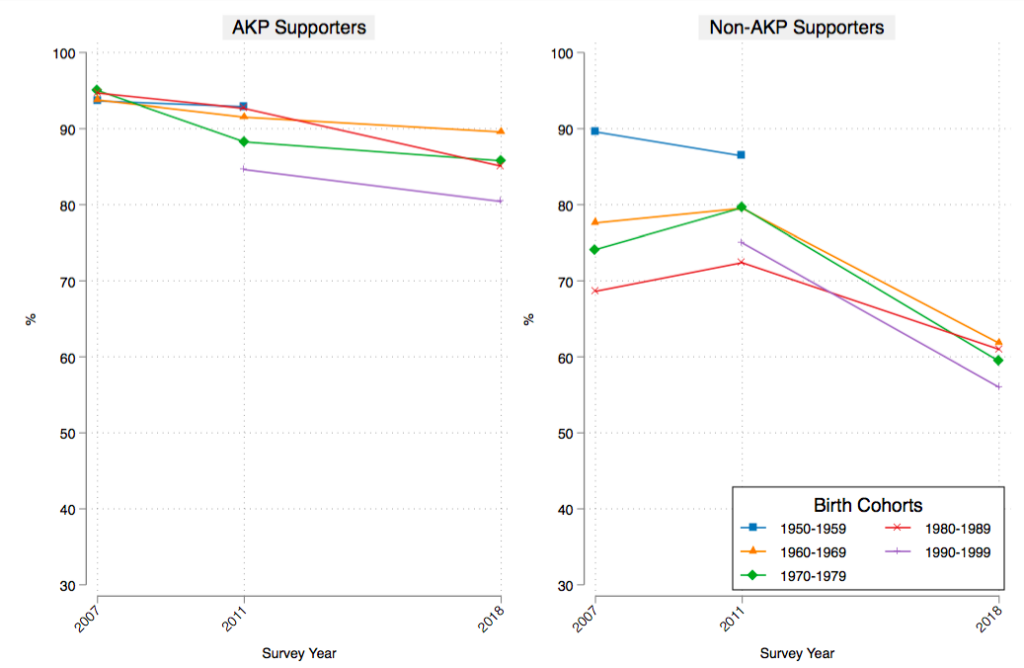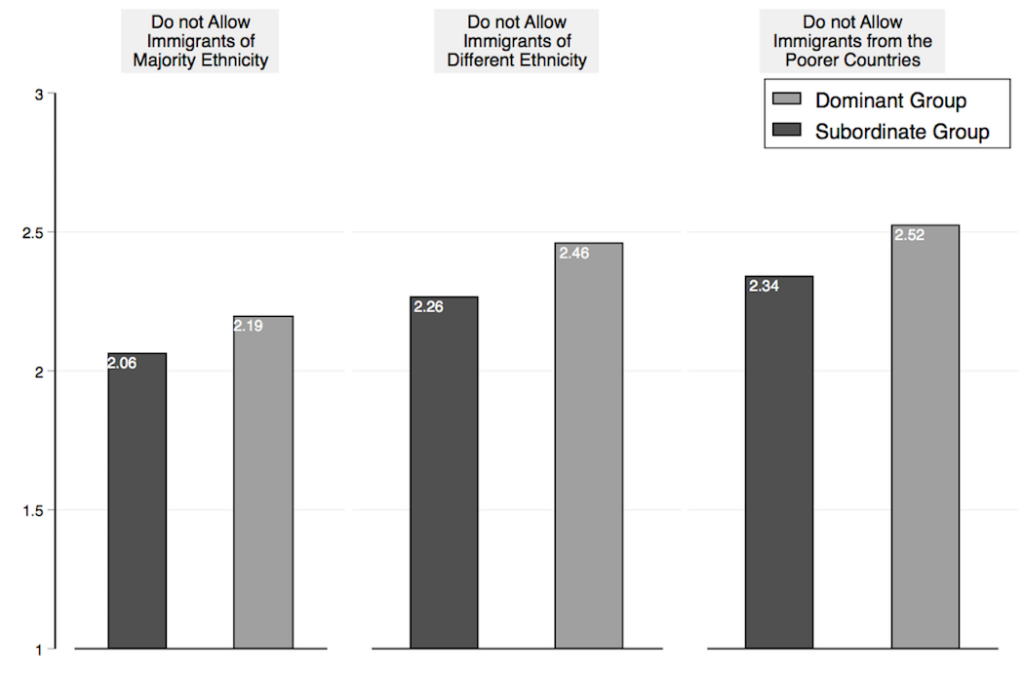Journal Articles
Atac, Ibrahim Enes & Gary J. Adler Jr. 2025. “Religious Rebound, Political Backlash, and the Youngest Cohort: Understanding Religious Change in Turkey.” Social Forces 103(3):1144–66. doi: 10.1093/sf/soae102.
Abstract
We distinguish two streams of theory that dominate explanations of religious change: cohort-based cumulative decline theory, which emphasizes small and ongoing declines in individual religiosity accruing across generations; and political backlash theory, which emphasizes period- and identity-based changes due to the politicized meaning of religion. Notably, Muslim countries have largely been excluded from a recent wave of quantitative research on individual-level religious change, implicitly continuing an assumption that Islamic societies require different theoretical concepts. We deploy both theories to examine religious identity and behavior over multiple decades in Turkey, a Muslim-majority country with recent social conflict over religion. Utilizing age-period-cohort interaction models, our results suggest minimal evidence for a cohort-based process in Turkey, in contrast to that observed in Western countries. Rather, a political transformation—the politicization of religion through the rise of Turkey’s AKP (Justice and Development Party) and President Erdogan—is most salient to Turkish religious change. We introduce two concepts to backlash theory—identity updating and performance signaling—to show how different dimensions of individual religiosity respond to different politicized contexts. These findings extend our understanding of religious change beyond the Western context, with further implications for theorizing political backlash and cohort-based processes.
Under Review
Atac, Ibrahim Enes, Charles Seguin, & Brandon Gorman. “The Wages of Ethnic Power: Socioeconomic Status, Group Threat, and Anti-Immigrant Attitudes in Europe.”
Abstract
Group threat theories explain anti-immigrant attitudes as emerging from threats to the perceived or actual power of one’s ethnic group. Studies of group threat typically focus on contextual factors, such as the size of the immigrant population, as sources of group threat. Here we argue individual socio-economic status (SES) interacts with ethnic group power, to produce anti-immigrant attitudes, as individuals with lower SES compensate by identifying with higher power ethnic groups. Using data from the European Social Survey and Ethnic Power Relations datasets, this study examines how interactions between ethnic group power and individual SES shape attitudes toward immigrants across thirty-three European countries. Findings indicate that dominant group members generally exhibit more anti-immigrant attitudes than members of subordinate groups. Higher SES correlates with less anti-immigrant attitudes, generally, but especially among dominant group members, where lower-SES individuals have the most anti-immigrant attitudes. At the highest levels of SES differences between dominant and subordinate group members in anti-immigrant attitudes nearly disappear. These results highlight the need to look to how the “psychological wages” of ethnic group power are accentuated by individual SES.